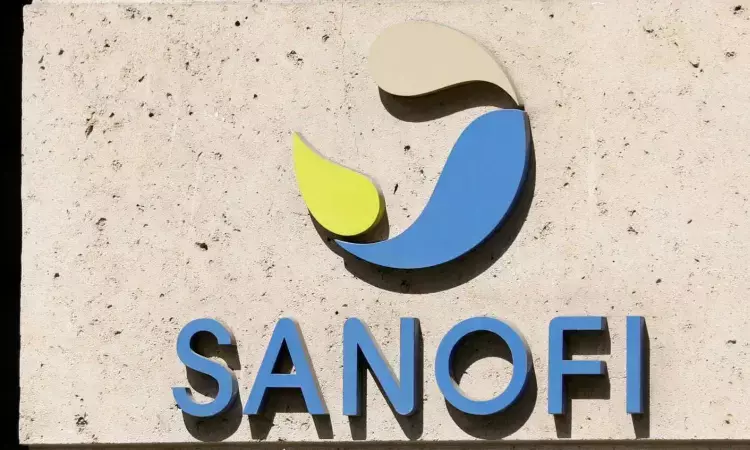- Home
- Medical news & Guidelines
- Anesthesiology
- Cardiology and CTVS
- Critical Care
- Dentistry
- Dermatology
- Diabetes and Endocrinology
- ENT
- Gastroenterology
- Medicine
- Nephrology
- Neurology
- Obstretics-Gynaecology
- Oncology
- Ophthalmology
- Orthopaedics
- Pediatrics-Neonatology
- Psychiatry
- Pulmonology
- Radiology
- Surgery
- Urology
- Laboratory Medicine
- Diet
- Nursing
- Paramedical
- Physiotherapy
- Health news
- Fact Check
- Bone Health Fact Check
- Brain Health Fact Check
- Cancer Related Fact Check
- Child Care Fact Check
- Dental and oral health fact check
- Diabetes and metabolic health fact check
- Diet and Nutrition Fact Check
- Eye and ENT Care Fact Check
- Fitness fact check
- Gut health fact check
- Heart health fact check
- Kidney health fact check
- Medical education fact check
- Men's health fact check
- Respiratory fact check
- Skin and hair care fact check
- Vaccine and Immunization fact check
- Women's health fact check
- AYUSH
- State News
- Andaman and Nicobar Islands
- Andhra Pradesh
- Arunachal Pradesh
- Assam
- Bihar
- Chandigarh
- Chattisgarh
- Dadra and Nagar Haveli
- Daman and Diu
- Delhi
- Goa
- Gujarat
- Haryana
- Himachal Pradesh
- Jammu & Kashmir
- Jharkhand
- Karnataka
- Kerala
- Ladakh
- Lakshadweep
- Madhya Pradesh
- Maharashtra
- Manipur
- Meghalaya
- Mizoram
- Nagaland
- Odisha
- Puducherry
- Punjab
- Rajasthan
- Sikkim
- Tamil Nadu
- Telangana
- Tripura
- Uttar Pradesh
- Uttrakhand
- West Bengal
- Medical Education
- Industry
Sanofi gets USFDA Breakthrough Therapy designation for multiple sclerosis therapy Tolebrutinib

Paris: Sanofi has announced that the US Food and Drug Administration (FDA) has granted Breakthrough Therapy designation to Tolebrutinib for the treatment of adults with non-relapsing secondary progressive multiple sclerosis (nrSPMS).
This is based on positive results from the HERCULES phase 3 study, demonstrating that tolebrutinib delayed the time to onset of 6-month confirmed disability progression (CDP), by 31% compared to placebo (HR 0.69; 95% CI 0.55-0.88; p=0.0026), with further analysis of secondary endpoints demonstrating that the number of participants who experienced confirmed disability improvement was nearly double with tolebrutinib (10%) compared to those on placebo (5%) (HR 1.88; 95% CI 1.10 to 3.21; nominal p=0.021).
FDA Breakthrough Therapy designation is designed to expedite the development and review of medicines in the US that target serious or life-threatening conditions. Medicines qualifying for this designation must show preliminary clinical evidence that the drug may demonstrate substantial improvement on clinically significant endpoints over available medicines.
Erik Wallström, MD, PhD, Global Head of Neurology Development, Sanofi said, “This Breakthrough Therapy designation demonstrates the potential for tolebrutinib to delay disability progression, a critical unmet need for people living with multiple sclerosis. We look forward to working with the FDA during the regulatory review of this first of its kind medicine in non-relapsing secondary progressive multiple sclerosis where there are currently no approved treatments available.”
Liver enzyme elevations (>3xULN) were observed in 4.1% of participants receiving tolebrutinib compared with 1.6% in the placebo group. A small (0.5%) proportion of participants in the tolebrutinib group experienced peak ALT increases of >20xULN, all occurring within the first 90 days of treatment. All but one case of liver enzyme elevations resolved without further medical intervention. The implementation of more frequent monitoring has helped mitigate serious liver sequelae.
Multiple sclerosis is a chronic, immune-mediated, neurodegenerative disease that may result in accumulation of irreversible disabilities over time. The physical and cognitive disability impairments translate into gradual deterioration of health status, impacting patients’ care and quality of life. Disability accumulation remains the significant unmet medical need in MS. To date, the primary target of current medicines has been peripheral B and T cells, while innate immunity, which is believed to drive disability accumulation, remains largely unaddressed by current medicines. Currently approved, or late-stage medicines being tested for MS mainly target the adaptive immune system and/or do not act directly within the central nervous system to drive clinical benefit.
nrSPMS refers to people with MS who have stopped experiencing relapses but continue to accumulate disability, experienced as symptoms such as fatigue, cognitive impairment, balance and gait impairment, loss of bowel and/or bladder function, sexual disfunction, amongst others.
Regulatory submissions of tolebrutinib are currently being finalized for the US and prepared for the EU. As with other medicines, Sanofi plans to confirm once a regulatory submission for tolebrutinib has been accepted. The PERSEUS phase 3 study in primary progressive MS is currently ongoing with study results anticipated in H2 2025.
Tolebrutinib is an investigational, oral, brain-penetrant, and bioactive Bruton’s tyrosine kinase (BTK) inhibitor that achieves cerebrospinal fluid concentrations predicted to modulate B lymphocytes and disease-associated microglia. Tolebrutinib is being evaluated in phase 3 clinical studies for the treatment of various forms of multiple sclerosis and its safety and efficacy have not been evaluated by any regulatory authority worldwide.
Read also: Gilead Sciences ropes in Sanofi official Dietmar Berger as new Chief Medical Officer
Ruchika Sharma joined Medical Dialogue as an Correspondent for the Business Section in 2019. She covers all the updates in the Pharmaceutical field, Policy, Insurance, Business Healthcare, Medical News, Health News, Pharma News, Healthcare and Investment. She has completed her B.Com from Delhi University and then pursued postgraduation in M.Com. She can be contacted at editorial@medicaldialogues.in Contact no. 011-43720751


